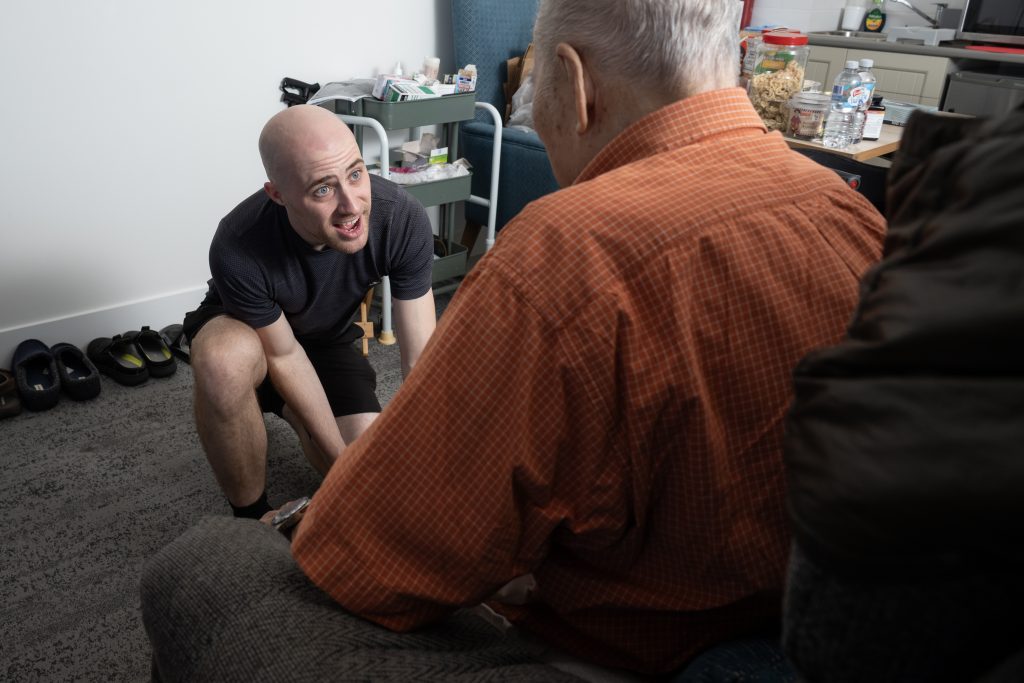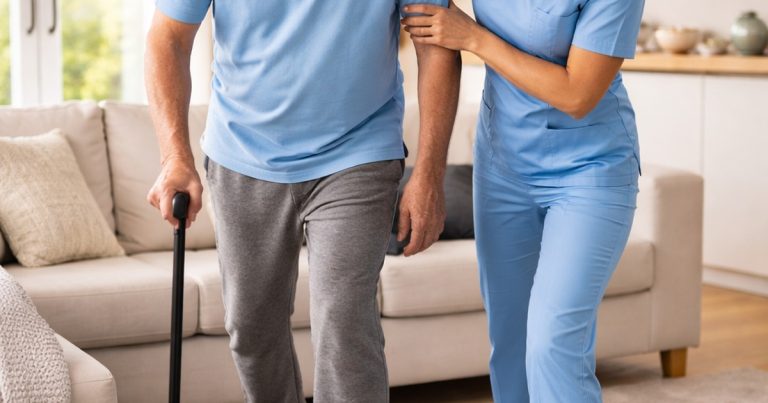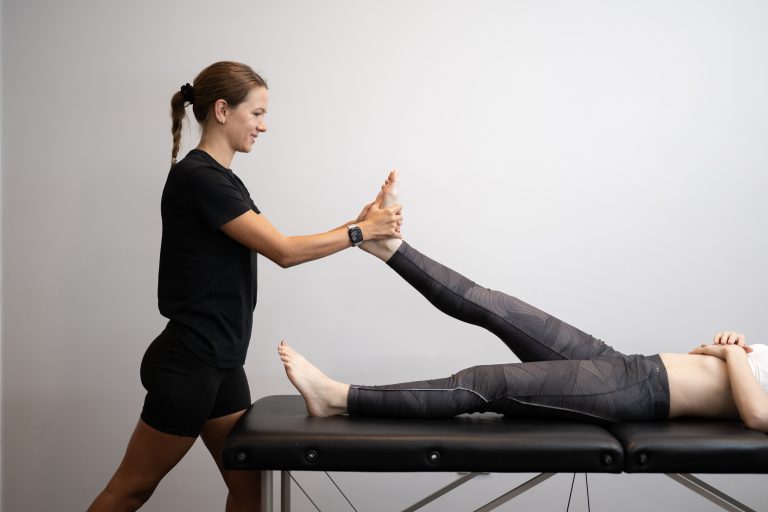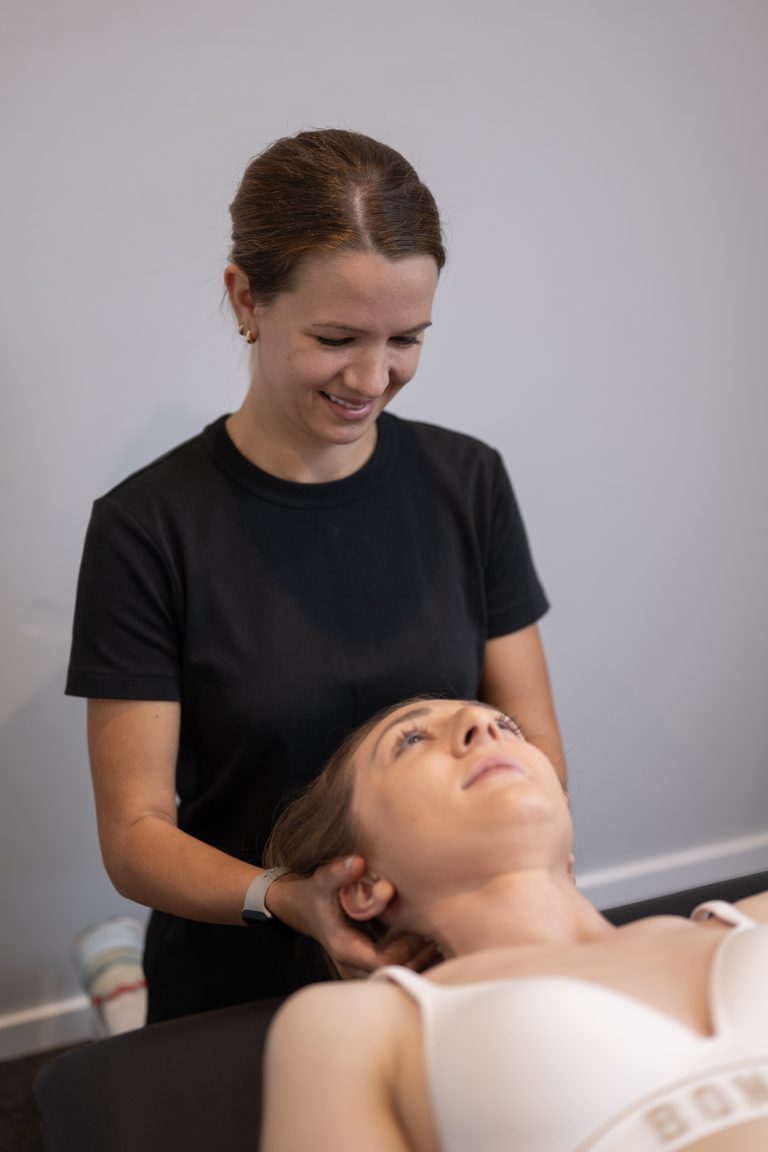Achilles tendinopathy is a bit like that one friend who doesn’t get the message to go home. It is persistent, flares up at the most inopportune times, and is aggravated by normal tasks. So if you’re on the Gold Coast and you’ve been wondering, “Is this Achilles going to completely go away? You’re not the only one who has grappled with Achilles tendinitis. Achilles pain is a question we have been asked several hundred times here at GM Physiotherapy. So let’s talk about it.
Understanding Achilles Tendinopathy and Achilles Pain
Let’s get one thing straight, Achilles tendinopathy doesn’t equal an acute Achilles tear. This is a chronic overuse injury that involves the Achilles tendon, the thick band that attaches your calf muscles to your heel bone. It often includes stiffness, tenderness, swelling and pain with activity, particularly running or jumping.
It is frequently a result of repetitive strain or suddenly escalating activity without adequate recovery, both of which can lead to tendon pain. Consider long-distance runners who are increasing their mileage too quickly, weekend warriors attempting to re-create their glory days, or even some people with bad foot mechanics who aren’t in the right shoes.
The tricky part? Tendons are not well nourished with blood, so when they become inflamed or degenerated, they heal more slowly than do other tissues. That’s why the pain can feel like it drags on and on and rehabilitation feels like it’s taking forever. This is particularly frustrating for active people.
Will It Ever Really Go Away? Treatment for Achilles Tendonitis
Here’s the truth, Achilles tendinopathy absolutely can go away, but it rarely disappears on its own without proper treatment. The key lies in understanding that this isn’t a quick fix. Unlike a sprained ankle or a pulled hamstring, tendinopathy involves structural changes in the tendon itself, which can lead to Achilles tendinitis. You’ve got to retrain the tissue to alleviate chronic Achilles discomfort.
Some people find that the pain comes and goes, while others suffer for months or even years. It all depends on how early you catch it, what kind of treatment you follow, what physical activity you’re doing and how consistent you are with rehab.
At GM Physiotherapy, we see patients who’ve tried to tough it out, rest it away, or stretch their way out of it. The problem is, passive treatments don’t address the real issue of chronic Achilles pain. Rest might reduce pain temporarily, but without progressive loading (aka strengthening), the tendon won’t remodel and get back to full function.
Why Does It Take So Long to Heal?
Unlike muscles that regenerate relatively fast, tendons heal slowly. Tendinopathy, often referred to as tendinosis, is not an “inflammatory” injury; it’s more degenerative and can cause pain over time. That means the collagen fibres in your tendon become disorganised and weakened. Think of it like a fraying rope rather than an angry, swollen balloon.
If you keep stressing that tendon with poor mechanics or sudden activity, it’s like picking at a scab. It’ll keep flaring up and stay stuck in a cycle of irritation.
Things like poor ankle mobility, tight calves, weak glutes, flat feet, or wearing non-supportive footwear can all contribute to the delay in healing. And unfortunately, many people wait too long to get help, thinking it will magically sort itself out.
The Role of Physiotherapy in Recovery
Now, here’s the good news. Physiotherapy can make a massive difference in healing from Achilles tendinopathy, not just for short-term relief, but for long-term resolution. At GM Physiotherapy here on the Gold Coast, we combine hands-on treatment with evidence-based rehab protocols to not just calm the pain, but strengthen the tendon and surrounding muscles.
One of the most effective treatment approaches a physiotherapist can guide you through involves a structured loading program. This might include eccentric heel drops, isometric holds, and progressive resistance training to rebuild the tendon’s strength and integrity. We tailor every program to the individual, factoring in your goals, sport, lifestyle, and any movement imbalances we identify during our assessment.
We also use techniques like soft tissue release, dry needling, shockwave therapy, and joint mobilisations where appropriate. These can help reduce pain and improve tissue quality, making your rehab smoother.
What sets us apart is that we don’t just treat the symptom, we work on the whole kinetic chain. That means checking your biomechanics, movement patterns, and foot posture to make sure we’re addressing all contributing factors.
What’s the Recovery Time?
Recovery time isn’t the same for everyone. Some people start seeing improvements within a few weeks, while others take several months to fully bounce back from chronic Achilles issues. On average, you can expect noticeable changes in pain and function within 8 to 12 weeks with a solid treatment plan.
However, chronic tendinopathies, ones you’ve been ignoring for months or even years, may need a bit longer. But here’s the key point: the sooner you start, the faster you heal.
Consistency is everything. Skipping your exercises or stopping rehab as soon as the pain eases can set you back. That’s why having expert guidance and ongoing support is crucial.
Can You Ever Be Pain-Free Again?
Yes, and we’ve seen it time and time again. With the right treatment approach in sports medicine, most people can return to full function, pain-free, and even resume high-impact sports without fear of a rupture. But staying pain-free involves staying proactive. Once your tendon heals, it’s smart to keep up some form of strength and mobility work to avoid future flare-ups.
And don’t worry, just because you’ve had Achilles tendinopathy once doesn’t mean it’s a lifelong sentence. You’ve just got to play it smart and consider various treatment options for Achilles tendon pain.
How We Help at GM Physiotherapy with the Management of Achilles Tendinopathy
At GM Physiotherapy, our mission is to help Gold Coast locals move better, feel better, and stay pain-free. Whether you’re an athlete, tradie, or busy parent, we treat every patient with a personalised, down-to-earth approach. No cookie-cutter programs here.
We take the time to understand your injury history, daily routine, and goals. From there, we build a tailored rehab plan that fits your lifestyle and gets you back on your feet, literally.
If you’re ready to stop wondering whether this pain will ever go away and start healing, we’d love to help you get there. Book in for a consultation, and let’s get started.
Frequently Asked Questions
Is Achilles tendinopathy the same as tendonitis?
Not quite. Tendonitis is more about inflammation. Tendinopathy is a degenerative condition, meaning the tendon fibres have changed in structure.
Will I need surgery?
In rare, severe cases where conservative treatment fails, surgery may be considered. But for most people, physiotherapy is enough to resolve the issue.
Can I keep running with chronic Achilles tendinopathy?
It depends on the severity. Sometimes you may need to reduce load or switch to a low-impact activity while strengthening the tendon. We’ll guide you based on your case.
What happens if I ignore the pain?
Chronic tendinopathy can worsen and become harder to treat over time. Don’t wait — early treatment leads to better outcomes.
Management of Achilles Tendinopathy
Achilles tendinopathy isn’t something you just “walk off.” But with the right plan, the right guidance, and a little patience, it’s something you can overcome. It may take time, effort, and expert help, but the reward, moving pain-free, is so worth it.
Still unsure where to start? Let us at GM Physiotherapy on the Gold Coast help you take that first step toward healing.
Ready to kick Achilles tendon pain to the curb for good? Get in touch with us today let’s get to work on overcoming Achilles tendon pain together.





 Back to all posts
Back to all posts

